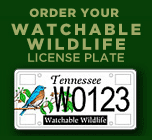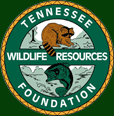Percy Priest WMA, Field Trial Area
Site Directions: From I-24, take exit 66, Sam Ridley Parkway, east 2.8 miles and merge onto US-41/US-70S towards Smyrna/LaVergne and travel north on “US-41N/US-70N/Murfreesboro Rd/Lowry St” (the road has a lot of names and numbers). Travel 1.3 miles to a light at Fergus Rd. and make a right onto Fergus Rd. Travel 0.8 miles and turn right on Jones Mill Rd. Travel past the main entrance to the WMA for a total of 1.8 miles from Fergus Rd to the entrance to the Field Trial Area (there are signs). Make a left onto Old Jones Mill Rd and enter the WMA.
Lat-Long: 36.031887, -86.512917, entrance to the field trial area on the WMA
Lat-Long: 36.038325, -86.51517, "goose ponds" on either side of the road
Hours: day light hours
Seasonality: year round, however the WMA is CLOSED to the public every Fri-Sun from September through April for dog field trials.
Fees: none
Site Description: The field trial area has a mixture of agricultural fields, old fallow fields, shallow water ponds (sometimes dry), and has a view of Percy Priest Lake. All roads are gravel and we encourage people to stay on the main gravel roads at all times. Dirt roads can be very slippery when wet and are often in poor condition for cars and small trucks.
After entering the WMA, take the first left turn approximately 0.3 miles from the gate. This gravel road will pass “goose ponds” on both sides of the road that are periodically flooded. Follow the main gravel road around the WMA to explore other ponds and fields.
Wildlife to Watch: The old fields attract sparrows, Indigo Buntings, Northern Bobwhite, among other grassland birds in season. In fall, Rose-breasted Grosbeak can be common. In summer, Prairie Warblers, Indigo Buntings, Eastern Bluebird, Blue Grosbeak, and Field Sparrows can be abundant.
The “goose ponds” along the first gravel road on the left (mentioned above) can be excellent for wading birds, sora, and shorebirds, if the water level is suitable. The habitat is very hit or miss, but has been excellent. Buff-breasted Sandpipers were present along with Pectoral Sandpipers, Lesser and Greater Yellowlegs, Least Sandpipers, among others in fall 2011. In fall 2012, Sora were found in ponds on both sides of the road. There are a couple pull offs for parking and you are allowed to walk the fields.
Bald Eagles may be found year round, while Peregrine Falcons could pass through in spring and fall. Northern Harriers are likely regular in winter.
Waterfowl and gulls may occur on the lake proper in season.
For more information:
Percy Priest WMA map
Submit your data to eBird and help us build a list of birds seen at this site
Be sure to check out our Safety Tips page for important information regarding viewing wildlife in these areas.

















